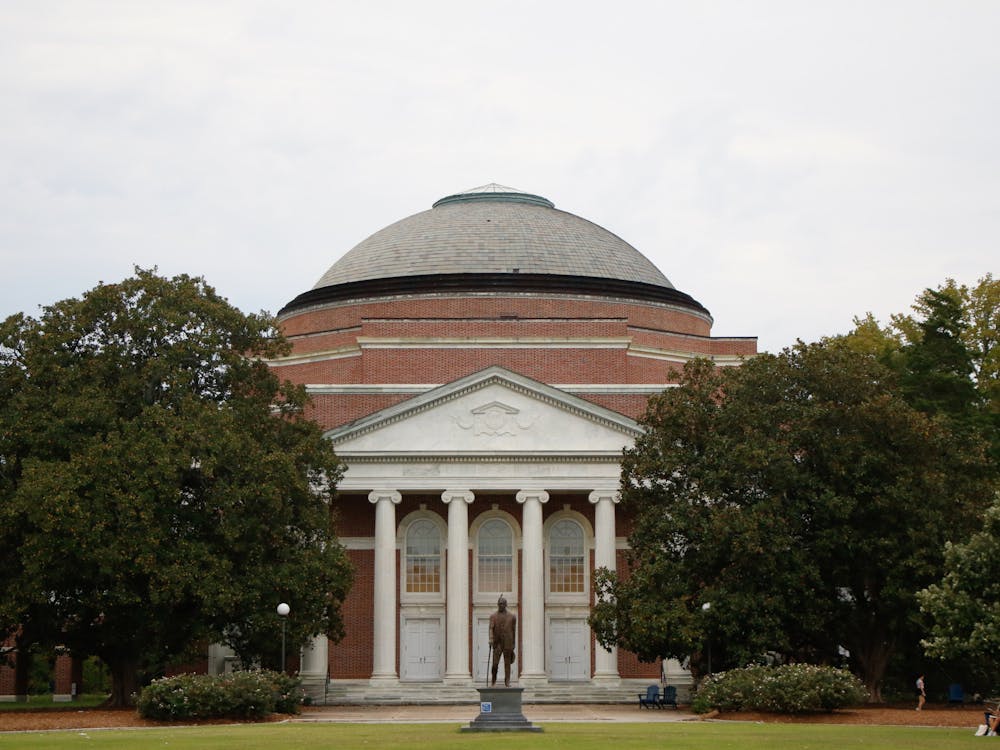In 2020, Arts and Sciences Council voted to create a new inequality studies minor. Three years since its inception, the minor has seen significant growth, with over 150 students currently enrolled across its three courses.
The minor, a joint collaboration between the Samuel DuBois Cook Center on Social Equity and the history department, provides students with the opportunity to “advance their understanding of the causes and consequences of inequality and pursue research around issues of social equity across a range of social science methods.”
The program was inspired by the success of the Global Inequality Research initiative, a program working to increase interdisciplinary research in inequality at the University, according to Adam Hollowell, senior research associate at the Cook Center.
Hollowell explained that because most of Duke’s courses were offered by academic departments, the Center had to look for a partner to establish the minor.
The department of history was the first partner the Center approached, since Center members “felt strongly that you can't understand contemporary inequality without understanding the history of inequality,” Hollowell said. Since then, the department has been a “wonderful collaborator and partner.”
Hollowell said that a pathway to establish such a minor would be to code every course that touches on inequality and award a minor to students who complete a fixed number of these courses.
The minor offers a structured curriculum of three core courses — HISTORY 288, History of Inequality, HISTORY 323, Methods in Inequality Studies, and PUBPOL 435/645, Global Inequality Research Initiative — and three history electives.
“To our knowledge, this is the first minor that has a structured curriculum that involves a specific focus on history and cultivation of undergraduate research in the field of inequality studies,” Hollowell said. “Our program is unique, but it's not unparalleled.”
When the Cook Center's minor was initially proposed, there were only a few similar minors available, such as Cornell's Center for the Study of Inequality's minor in inequality studies and the University of Chicago's minor in inequality, social problems, and change.
Sophomore Joyce Thomas, who took Methods in Inequality Studies, found that the minor enabled her to concentrate on studying inequality through research, eliminating the challenge of searching for classes specifically focused on this theme.
“One of the things that that class taught me is the value of someone's story and how someone's story can really tell you so much about what you're researching,” Thomas said. “Society as a whole tends to value numbers more when we're looking at research … [the class] helped me unlearn that.”
Hollowell believes a significant benefit of the minor is that it can be combined with and complement any major within Trinity College’s curriculum.
“Whether you're a public policy major like myself, or like a health science major or some other form of STEM, it can be beneficial to have the skills that you learn,” senior Drew Greene said.
Greene says that the minor allowed him to step out of his comfort zone, breaking out of a pre-professional culture at the University that “forces us to think we want more money … we want a good job, [we] want prestige.”
“It's very easy to get stuck on campus and be in this isolated bubble where you have people from all over the country, but it's not as socioeconomically diverse as one would hope,” Greene said.
Get The Chronicle straight to your inbox
Signup for our weekly newsletter. Cancel at any time.
Ishita Vaid is a Trinity junior and a senior editor of The Chronicle's 120th volume.

